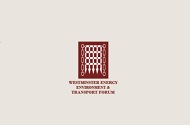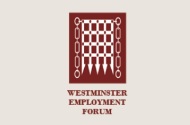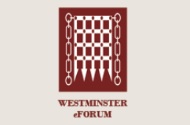
Electricity Digitalisation and Smart Energy Systems in the UK
This conference focuses on priorities for electricity digitalisation and smart energy systems in the UK.
With the digitalisation of the energy sector seen as critical to meeting net-zero by 2050, delegates will assess what is needed to deliver a transition to a smart, flexible energy system at the pace and scale needed.
Stakeholders and policymakers will examine priorities and discuss the pathway for integrating low carbon technologies with the millions of new and existing assets that will comprise the net-zero energy system of the future, including solar panels, electric vehicles, heat pumps, batteries and smart consumer devices.
Additional areas for discussion include collaboration, investment, regulation, overcoming cyber security and data challenges, and the potential role that consumers can play.
The conference will be a timely opportunity to review the modernisation progress so far, and next steps for policy and regulation following publication of the Digitalising our energy system for net zero: strategy and action plan last year, and the more recent Energy Digitalisation Taskforce’s report calling for fundamental energy system change.
The Westminster Energy, Environment & Transport Forum are pleased to be able to include keynote sessions with Doug Cook, Deputy Director, Digitalisation and Decentralisation, Ofgem; and Rob Saunders, Prospering from the Energy Revolution, UKRI.
Overall, key areas for discussion include:
- policy:
- priorities for supporting the rollout of digitalisation in the energy sector in the UK
- reducing barriers for delivering smart local energy solutions in areas such as infrastructure, data and interoperability
- integration with long term plans to accelerate decarbonisation, and opportunities for carbon monitoring and digitally-supported governance
- regulation:
- support for innovation in smart energy devices and systems whilst maintaining data security and stewardship
- priorities for competition and market structures, and encouraging investment and supporting adoption across the energy system
- integration:
- the strategic pathway for connecting existing and future energy system assets across the sector
- assessing the options and planning needed for streamlining process, and preparing networks for diversification and expansion across digital assets
- opportunities for collaboration:
- data infrastructure – assessing options and practical issues for sharing in order to respond to high energy demands across live locations
- smart assets – cooperation between stakeholders to gain more granular data in areas such as heat pumps, solar panels and home batteries
- digital security – putting in place collaborative frameworks for strengthening the cybersecurity of energy networks
- interoperability – standardising systems and protocols to help facilitate the transition
- demand-side response – growing the role of customers in achieving greater grid flexibility based on actively managing energy assets, such as registering and integrating small scale assets
The conference will be an opportunity for stakeholders to consider the issues alongside key policy officials who are due to attend from BEIS; DAERA, NI; DIT; Department for the Economy, NI; and the Welsh Government.



